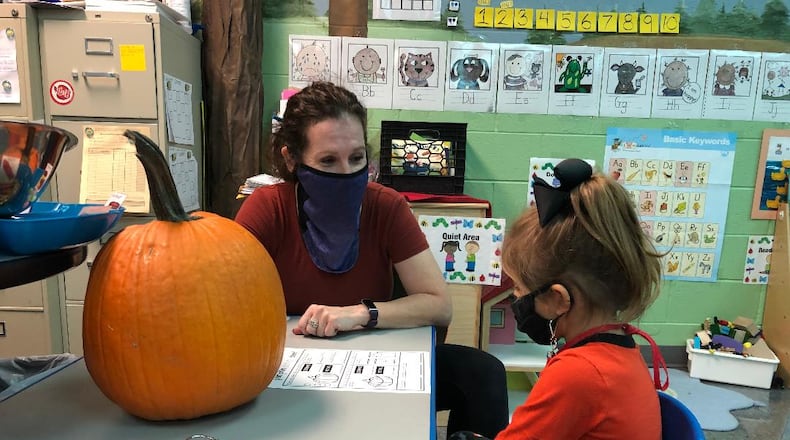Build Back Better passed the U.S. House of Representatives but stalled in the Senate. Fedor’s bill, Ohio Senate Bill 318, does not have specifics on financials.
Fedor is running for lieutenant governor on the Democratic ticket alongside former Cincinnati mayor John Cranley. Expanding preschool access and funding would help families who have left the workforce during the pandemic to return to work, she said.
“It is clear that many parts of our state do not have affordable childcare options,” she said.
The Clark Early Learning Center in Clark County, which is open to eligible 3- and 4-year-old students in the Springfield City School District, is funded through a state grant, as well as other state, local and federal funds. It serves 334 students and has a five-star rating from the Ohio Department of Education.
Jenna Leinasars, Springfield Communications Specialist, said it’s unclear how the bill will affect the center moving forward, especially with the changes that happen before a bill is finalized.
“If this piece of legislation were to be passed, it would mean more federal funding funneled into the district to cover our preschool operating costs — which is always a benefit,” she said. “The district certainly welcomes more opportunities to expand the high level of services that are offered to preschool families. However, if this legislation does not pass, it will not negatively impact current services.”
In Champaign County, Lulu’s Lullaby in Urbana, also a five-star center, offers infant, toddler, preschool and school-aged before and after school programs. It is federally funded and has two options: eligible low-income families can get help through county funds with full or partial payments or families pay the full amount out-of-pocket.
The preschool program is offered to any 3 to 5 year olds in the county. Luzman Farah, owner and director of the center, said she it not sure what the funding will mean if the bill passes, but would “help overall.”
“I’m not sure if funding would go up, but it that’s the case, it would be nice because one thing we struggle with in the childcare field is teachers not getting paid a lot. With a rural area like this, it’s even lower. So, I think that money would help if it goes towards teachers and teachers getting paid well. It would sustain the longevity of how long they are here and not just in and out,” she said.
Ohio has about 120,000 children in each grade level in Ohio, according to the Fordham Institute.
Opponents of the bill question how much the program will cost Ohio when the federal money runs out. If Build Back Better passes and Ohio accepts the money, the state would have to fund 40% of the program by year six.
That’s something that worries Greg Lawson of the Buckeye Institute, a conservative think tank. He noted there is plenty of federal money available right now, but those funds won’t be there forever.
Lawson said he also believes there isn’t enough evidence to say absolutely that universal preschool is the best option for everyone. He pointed to a Tennessee study that came out earlier in 2022 and showed lower-income children who attended preschool in Tennessee did the same or worse on standardized testing as their peers who did not attend preschool.
Fedor, though, pointed to the state of Georgia, which has a lottery system for free preschool, and noted other studies have shown lower-income kids do better in school when they attend preschool.
“Maybe it’s not just how much you spend, but how do we structure these programs, and should we have maybe a more limited program that targets certain students,” Lawson said.


